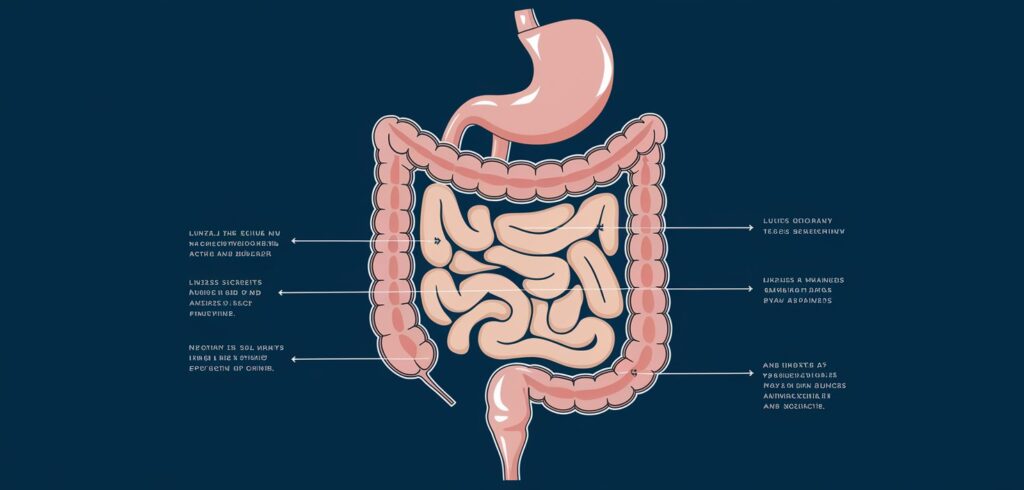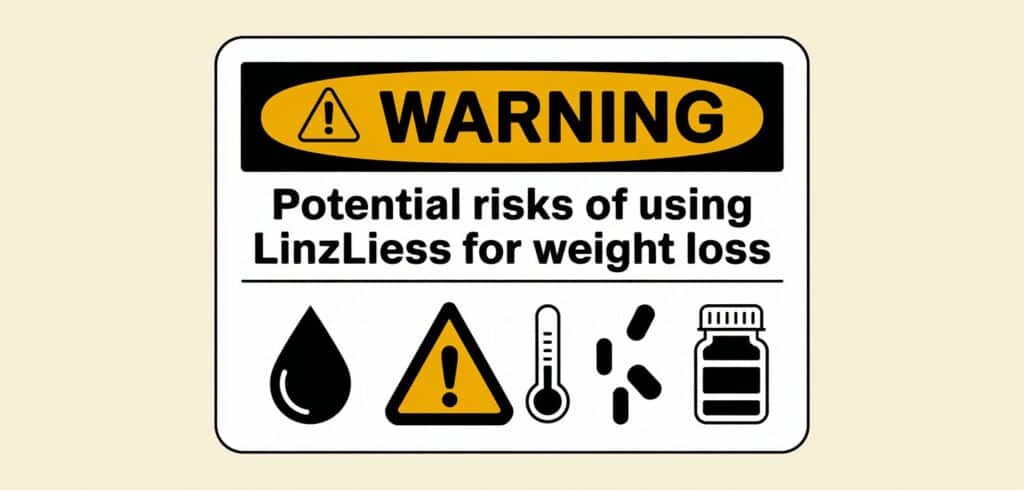How to Use Linzess for Weight Loss: A Comprehensive Guide
Table of Contents
- Introduction
- Understanding Linzess
- Can Linzess Help with Weight Loss?
- Mechanism of Action: How Linzess Affects Your Body
- Risks of Using Linzess for Weight Loss
- How to Use Linzess Safely
- Side Effects and Considerations
- Who Should Avoid Using Linzess?
- The Psychological Impact of Misusing Linzess
- Alternative Approaches to Weight Loss
- Medically Supervised Weight Loss Programs
- Dietary Supplements and Their Role in Weight Loss
- Behavioral Changes for Sustainable Weight Loss
- Conclusion
Introduction
Many people are curious about how to use Linzess for weight loss, especially as they explore various ways to manage their weight. While Linzess (linaclotide) is an FDA-approved medication for treating constipation and irritable bowel syndrome with constipation (IBS-C), it has also gained attention for its potential effects on weight. In this article, we’ll explore whether Linzess is effective for weight loss, the risks involved, and alternative strategies for achieving your weight loss goals.

Understanding Linzess
Linzess is a guanylate cyclase-C agonist that works by increasing the amount of fluid in the intestines and speeding up the movement of food through the gastrointestinal tract. It’s primarily prescribed to relieve symptoms of chronic constipation and IBS-C. However, some people have reported weight changes while using Linzess, leading to speculation about its potential as a weight loss aid.

What is Linzess?
Linzess, also known by its generic name linaclotide, is a prescription medication that is classified as a guanylate cyclase-C agonist. This class of drugs is known for its ability to increase intestinal fluid secretion and accelerate the movement of food through the digestive tract. Linzess is specifically approved for the treatment of irritable bowel syndrome with constipation (IBS-C) and chronic idiopathic constipation (CIC). These conditions are characterized by difficult or infrequent bowel movements, often accompanied by abdominal pain and discomfort.
Why Was Linzess Developed?
Linzess was developed as a response to the need for more effective treatments for constipation-related disorders. Before its approval, treatment options were limited, and many patients struggled with the symptoms of IBS-C and CIC despite trying various over-the-counter remedies and lifestyle changes. Linzess provides a targeted approach by addressing the underlying mechanisms of these conditions, offering relief from symptoms that can significantly impact quality of life.
Linzess for IBS-C and Chronic Constipation
Linzess is effective in treating two main conditions: irritable bowel syndrome with constipation (IBS-C) and chronic idiopathic constipation (CIC). Patients who take Linzess typically experience relief from constipation and associated symptoms after a few days to a week of consistent use. However, the use of Linzess for purposes other than these approved indications, such as weight loss, is not recommended without proper medical guidance.
Can Linzess Help with Weight Loss?
Before diving into how to use Linzess for weight loss, it’s crucial to understand that Linzess is not designed or approved as a weight loss medication. Any weight loss experienced while taking Linzess is likely a side effect rather than a direct result of the medication’s intended function.
Does Linzess Cause Weight Loss?
Some users of Linzess report weight loss, which is usually linked to the drug’s side effects, such as diarrhea and reduced appetite. These effects can lead to a decrease in food intake and, consequently, weight loss. However, this type of weight loss is typically temporary and not sustainable in the long term.
Weight Gain and Bloating
On the flip side, Linzess can also cause weight gain in some individuals due to bloating. Bloating occurs when the body retains excess fluid, leading to a temporary increase in weight. This weight gain is usually not related to an increase in body fat but rather to water retention.
Expert Opinion on Linzess for Weight Loss
Medical experts do not recommend using Linzess as a weight loss aid. The medication’s effects on weight are secondary and not well understood. More importantly, relying on Linzess for weight loss can lead to health complications, especially if taken inappropriately or without a doctor’s supervision.
Mechanism of Action: How Linzess Affects Your Body
To better understand why Linzess is not suitable for weight loss, it’s essential to delve into its mechanism of action and how it affects the body.
How Linzess Works
Linzess works by activating guanylate cyclase-C receptors in the lining of the intestines. This activation increases the production of cyclic guanosine monophosphate (cGMP), a molecule that promotes the secretion of chloride and bicarbonate into the intestinal lumen. The increased fluid secretion softens the stool and stimulates bowel movements, helping to relieve constipation.
Impact on the Digestive System
The effects of Linzess are localized primarily to the digestive system, which is why it is effective in treating constipation and IBS-C. However, these effects can also lead to unintended side effects such as diarrhea, bloating, and abdominal discomfort. These side effects are often the reason some users experience weight loss while taking Linzess.
Why Weight Loss Occurs
Weight loss associated with Linzess is typically a result of dehydration and reduced food intake due to gastrointestinal discomfort. Diarrhea can cause significant fluid loss, leading to a temporary reduction in weight. Additionally, the discomfort caused by bloating or abdominal pain may reduce appetite, leading to lower calorie intake. It’s important to note that this type of weight loss is not sustainable and does not reflect a loss of body fat.
Risks of Using Linzess for Weight Loss

Using Linzess off-label for weight loss can be risky. Here’s why:
Health Risks
Linzess can cause several side effects, some of which can be severe. Diarrhea, one of the most common side effects, can lead to dehydration, electrolyte imbalances, and nutrient deficiencies if not managed properly. Bloating and abdominal pain are other potential side effects that can negatively impact your overall well-being.
Ineffectiveness for Long-Term Weight Loss
While some individuals may experience temporary weight loss due to the side effects of Linzess, this is not a sustainable or healthy way to lose weight. Weight lost through dehydration or reduced food intake is often quickly regained once normal eating patterns resume.
Risk of Misuse and Dependence
There is also a concern that using Linzess as a weight loss tool could lead to misuse or dependence on the medication. Unlike over-the-counter laxatives, which are sometimes misused for weight loss, Linzess is a prescription medication with specific dosing requirements that should not be altered without medical advice.
The Psychological Toll
Misusing medications like Linzess for weight loss can also take a psychological toll. The pressure to lose weight and the disappointment when unsustainable methods fail can lead to a cycle of unhealthy behaviors, including the misuse of other medications or the development of disordered eating patterns.
How to Use Linzess Safely
If you have been prescribed Linzess for constipation or IBS-C, it’s essential to use the medication as directed by your healthcare provider. Here are some key points to keep in mind:
Recommended Dosage
The typical dosage of Linzess for IBS-C is 290 mcg taken once daily, at least 30 minutes before the first meal of the day. For chronic idiopathic constipation, the recommended dose is 145 mcg once daily. In some cases, a lower dose of 72 mcg may be prescribed.
Administration Tips
Take Linzess on an empty stomach to maximize its effectiveness. Swallow the capsule whole without crushing or chewing it. If you have difficulty swallowing capsules, you can open the capsule and mix the contents with a small amount of applesauce or water. However, this should only be done if your doctor approves.
Managing Side Effects
If you experience side effects such as diarrhea or bloating, contact your healthcare provider for advice. They may adjust your dosage or recommend ways to manage these symptoms. Staying hydrated and maintaining a balanced diet can help mitigate some of the side effects associated with Linzess.
Long-Term Use Considerations
Linzess is typically prescribed for long-term use in managing chronic conditions like IBS-C and CIC. It’s important to follow your doctor’s instructions closely and to attend regular follow-up appointments to monitor your response to the medication. If you have any concerns about the long-term use of Linzess, discuss them with your healthcare provider.
Side Effects and Considerations
Like any medication, Linzess comes with potential side effects. It’s important to be aware of these and to take steps to minimize your risk.
Common Side Effects
- Diarrhea
- Bloating
- Abdominal pain
- Gas
- Headaches
Serious Side Effects
Although rare, some individuals may experience serious side effects such as severe diarrhea, dehydration, or allergic reactions. If you notice any signs of a serious side effect, such as difficulty breathing, swelling, or severe abdominal pain, seek medical attention immediately.
Considerations for Specific Populations
Linzess is not recommended for use in children under 6 years of age due to the risk of severe dehydration. It should also be used with caution in older adults, pregnant women, and individuals with certain medical conditions. Always consult your healthcare provider before starting or stopping any medication.
Who Should Avoid Using Linzess?
Linzess is not suitable for everyone. Certain populations and individuals with specific health conditions should avoid using this medication unless specifically directed by a healthcare provider.
Children and Adolescents
Linzess is not approved for use in children under 18 years old, and it carries a strong warning against use in children under 6 due to the risk of severe dehydration. The medication’s safety and effectiveness in younger populations have not been established, and its use could lead to dangerous side effects.
Pregnant and Breastfeeding Women
There is limited data on the safety of Linzess during pregnancy and breastfeeding. While animal studies have not shown significant risks, the potential effects on human fetuses or infants are not well understood. Pregnant and breastfeeding women should consult their healthcare provider before taking Linzess.
Individuals with Severe Dehydration
Because Linzess can cause diarrhea, which may lead to dehydration, individuals who are already dehydrated or at risk of dehydration should avoid using this medication. Severe dehydration can result in serious complications, including electrolyte imbalances and kidney damage.
The Psychological Impact of Misusing Linzess
In addition to physical side effects, the misuse of Linzess for weight loss can have significant psychological consequences.
Body Image Issues
Using medications like Linzess to achieve weight loss can exacerbate body image issues and contribute to the development of disordered eating patterns. The pressure to conform to societal standards of beauty can lead individuals to take extreme measures, including the misuse of prescription drugs.
Emotional Distress
When weight loss achieved through the misuse of Linzess is temporary and unsustainable, it can lead to feelings of failure, frustration, and emotional distress. These negative emotions can contribute to a cycle of unhealthy behaviors, including further misuse of medications or the development of eating disorders.
Dependence on Medication
Relying on a medication like Linzess for weight loss can lead to psychological dependence, where individuals feel they cannot manage their weight without the drug. This dependence can be difficult to break and may require professional intervention.
Alternative Approaches to Weight Loss

For those looking to lose weight, there are safer and more effective options than using Linzess. Here are some alternatives to consider:
Diet and Nutrition
A balanced diet that focuses on whole foods, such as fruits, vegetables, lean proteins, and whole grains, is crucial for sustainable weight loss. Reducing your intake of processed foods and added sugars can also help you achieve your weight loss goals.
Exercise
Regular physical activity is an essential component of any weight loss plan. Aim for at least 150 minutes of moderate-intensity exercise per week, including both cardio and strength training exercises. This will help you burn calories, build muscle, and improve overall health.
Behavioral Therapy
Behavioral therapy can help address the psychological factors that contribute to overeating and weight gain. Working with a therapist or counselor can provide you with the tools and strategies needed to make lasting changes to your eating habits and lifestyle.
Medical Weight Loss Programs
If you have struggled with weight loss in the past, consider enrolling in a medically supervised weight loss program. These programs often combine diet, exercise, and behavioral therapy with the guidance of healthcare professionals to help you achieve your weight loss goals safely.
Medications and Supplements
There are several FDA-approved medications for weight loss that may be more appropriate than using Linzess. These medications are specifically designed to help individuals lose weight and are typically prescribed along with diet and exercise. Always consult with your healthcare provider before starting any new medication or supplement.
Medically Supervised Weight Loss Programs
Medically supervised weight loss programs offer a comprehensive approach to weight management, often combining nutrition, exercise, behavioral therapy, and medications under the guidance of healthcare professionals. These programs are particularly beneficial for individuals with significant weight to lose or those with underlying health conditions that make weight loss more challenging.
What to Expect in a Medical Weight Loss Program
When you enroll in a medically supervised weight loss program, you can expect a thorough assessment of your health, including your medical history, current medications, and lifestyle habits. Based on this assessment, your healthcare provider will develop a personalized weight loss plan that may include:
- Customized meal plans
- Exercise prescriptions
- Behavioral counseling
- Prescription weight loss medications
- Regular follow-up appointments to monitor progress and adjust the plan as needed
Benefits of Medically Supervised Weight Loss
The primary benefit of a medically supervised weight loss program is the expert guidance and support you receive throughout your weight loss journey. These programs are designed to help you lose weight safely and effectively while minimizing the risk of complications. Additionally, they provide the accountability and motivation needed to stay on track and achieve long-term success.
Dietary Supplements and Their Role in Weight Loss
Dietary supplements are often marketed as weight loss aids, but their effectiveness varies widely. While some supplements can support weight loss by boosting metabolism, reducing appetite, or enhancing fat burning, others may offer little to no benefit.
Common Weight Loss Supplements
Some of the most commonly used weight loss supplements include:
- Green Tea Extract: Known for its antioxidant properties, green tea extract may boost metabolism and promote fat burning.
- Garcinia Cambogia: A tropical fruit extract that may reduce appetite and inhibit fat production.
- Glucomannan: A dietary fiber that expands in the stomach, promoting a feeling of fullness and reducing calorie intake.
- Caffeine: A natural stimulant that can increase metabolism and promote fat burning.
Safety and Effectiveness
While some dietary supplements can be effective in supporting weight loss, it’s essential to use them with caution. Not all supplements are safe, and some may interact with medications or have side effects. Always consult with your healthcare provider before starting any new supplement, especially if you have underlying health conditions or are taking prescription medications.
Behavioral Changes for Sustainable Weight Loss
Achieving and maintaining weight loss requires more than just diet and exercise; it also involves making lasting behavioral changes. Here are some strategies to help you build healthy habits that support long-term weight loss:
Mindful Eating
Mindful eating involves paying attention to your body’s hunger and fullness cues, eating slowly, and savoring each bite. This practice can help you make more conscious food choices, avoid overeating, and enjoy your meals more.
Setting Realistic Goals
Setting realistic, achievable weight loss goals is crucial for long-term success. Rather than aiming for rapid weight loss, focus on gradual, steady progress. This approach not only helps you maintain your motivation but also reduces the likelihood of regaining lost weight.
Building a Support System
Having a strong support system can make a significant difference in your weight loss journey. Whether it’s friends, family, or a weight loss group, having people who encourage and support you can help you stay motivated and accountable.
Overcoming Emotional Eating
Emotional eating is a common challenge for many people trying to lose weight. Learning to recognize the triggers that lead to emotional eating and developing healthier coping strategies can help you avoid this pitfall. Techniques such as stress management, journaling, and seeking professional help when needed can be invaluable in overcoming emotional eating.
Conclusion
While the idea of using Linzess for weight loss may be appealing to some, it’s important to understand that this medication is not intended for that purpose. The potential risks and side effects far outweigh any temporary weight loss benefits. Instead, focus on proven, sustainable weight loss strategies such as a balanced diet, regular exercise, and behavioral therapy. If you’re considering any medication for weight loss, consult with your healthcare provider to find a safe and effective option that’s right for you.
References
- Cid-Ruzafa, J., et al. (2022). Linaclotide utilization and potential for off-label use and misuse in three European countries.
- Levinson, J. A., et al. (2020). Diet Pill and Laxative Use for Weight Control and Subsequent Incident Eating Disorder in US Young Women: 2001–2016.
- National Eating Disorders Association. (n.d.). Laxative misuse.




